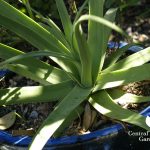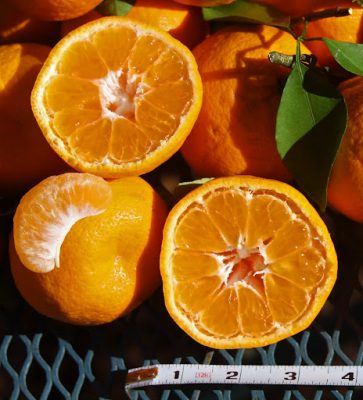Freeze-damaged tomatoes, what to do?
Thanks to Laura Zebehazy for this picture of her freeze-damaged tomatoes in 2013. She sent us a picture of the deformed leaves, though new growth was emerging. She’d done everything the right way and wondered what happened.
Well, she planted in early March and her tomatoes were doing just fine, and even setting fruit, until we got that sudden cold zap, as we inevitably do every spring. We sent Laura’s photo to Randy Thompson from Sunshine Community Gardens and he suspected cold damage.
It doesn’t even have to be frosty for tomatoes to get zapped, they can be damaged by night-time temperatures as high as 50 degrees. In March and even into April, we get warm days but still have some very chilly nights.
So, to get a jump on your tomatoes, be sure to cover them up to protect them until night-time temperatures are reliably in the 60’s.
Another factor to consider with early season planting of heat-loving vegetables is the soil temperature. Even if the ambient air temps are warm enough for your tender vegetable plants, the soil is going to stay cool well into spring. And cooler soil temperatures will slow down growth.
If your beds are in full sun, or at least getting 6 to 8 hours, the soil will heat up nicely during the day, helping it to stay warmer at night. But if your tomatoes and peppers don’t take off immediately, it may just be that their roots are still waiting patiently for the environment to be a little more welcoming for their growth.
And here’s good news from Laura! Her plants bounced back from the frost damage pretty quickly and she had a bountiful harvest in the summer.

 Ally Stresing
Ally Stresing Eric Pedley
Eric Pedley Deer and Cold Proof Succulents
Deer and Cold Proof Succulents Daphne Richards
Daphne Richards
 Trisha Shirey
Trisha Shirey